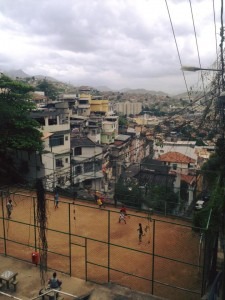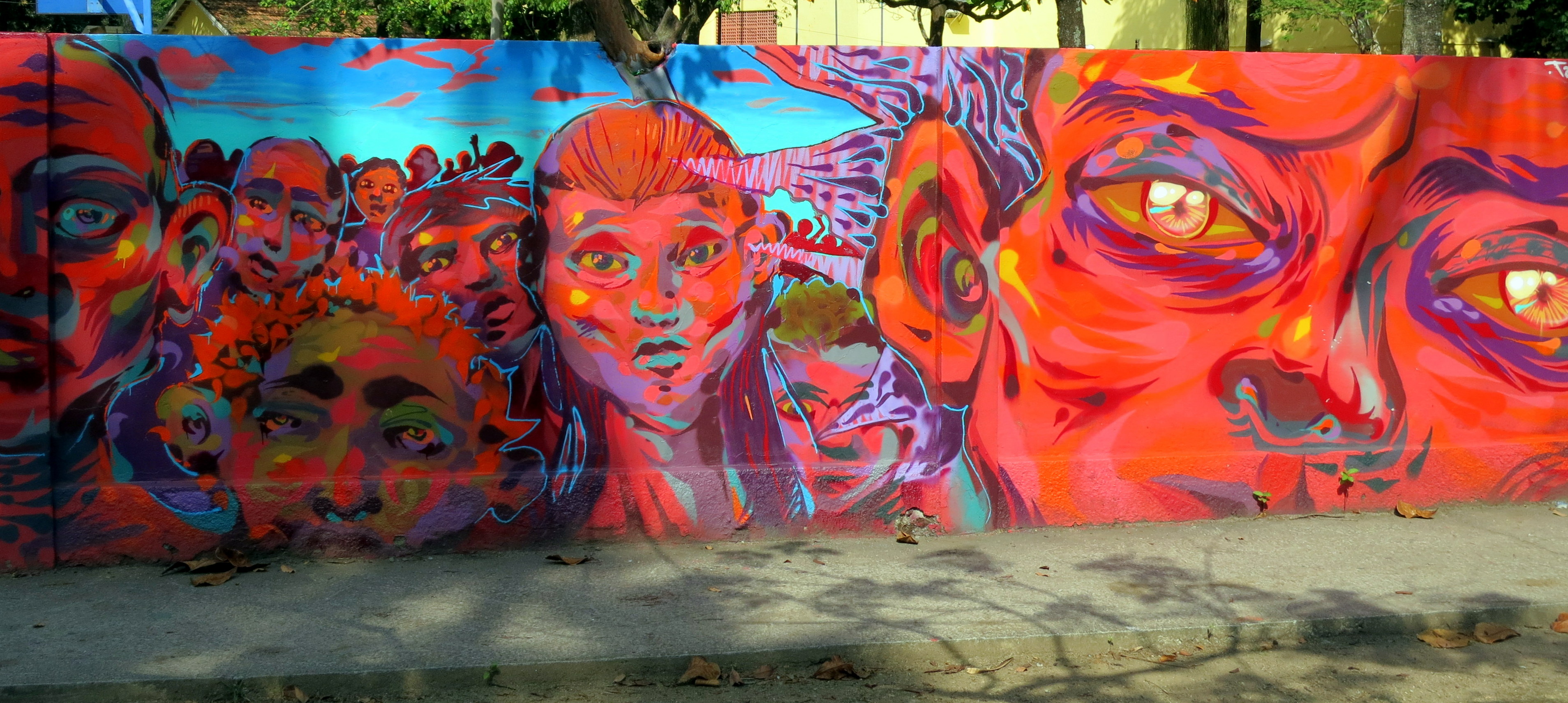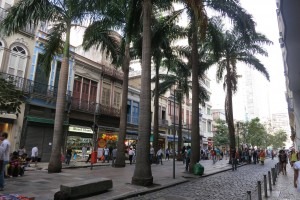This summer I had the incredible fortune of spending a month in Brazil taking an intensive language course. I arrived in Rio de Janeiro with a fairly set speech explaining my presence in the city and my desire to learn Portuguese. I’d discussed it with my mentor and typed it out on multiple university forms. It went something like this: “I am interested in learning Portuguese and visiting Brazil to gain a wider and more complete perspective as a Latin Americanist.”
So, predictably, when I was asked about my motivations on my first day of classes, I gave the spiel. Twice. Both instructors gave me a perplexed look. I know now they were wondering how to politely tell a student their academic motivations were misguided. It went something like this… “That’s so interesting…because…you know…Brazil isn’t really part of Latin America.” It was my turn to be confused.
I flashed back to all those articles on Latino versus Hispanic affinities, identifying with other colonized peoples as opposed to the colonizers, but how to explain all of that in my nearly-nonexistent Portuguese? And more importantly, why should I when no one was asking me to? Instead, I started asking almost every Brazilian person I interacted with whether they considered Brazil a part of Latin America.
The answe rs were dizzying in their spectrum. An elderly lady on the bus stated emphatically that of course Brazil was part of Latin America and anyone who said otherwise was uneducated, cold and jealous. A young engineering student said he used to think it was until he lived in Australia with a Colombian and found they had very little in common. Most people looked like they didn’t want to disappoint me as they said, no, Brazil is different. Different how, I’d ask, and most often they’d cite carnaval and the music.
rs were dizzying in their spectrum. An elderly lady on the bus stated emphatically that of course Brazil was part of Latin America and anyone who said otherwise was uneducated, cold and jealous. A young engineering student said he used to think it was until he lived in Australia with a Colombian and found they had very little in common. Most people looked like they didn’t want to disappoint me as they said, no, Brazil is different. Different how, I’d ask, and most often they’d cite carnaval and the music.
I wondered if Brazilians were just trying to reinforce their identity as a growing economy and world power by separating themselves from Latin America. I asked whether they felt their ties to Portugal were stronger, which got me more than a couple disdainful comments about the Comunidade dos Países de Língua Portuguesa (CPLP). No, Brazil is just Brazil.
But what about the ubiquitous rice and beans? The tropical fruit? The fact that I felt more at home there than in Texas? I repeatedly asked these things, but only in my head. In part, again, due to my limited language skills. But as the weeks progressed and those language skills became stronger, I realized that the real reason I wasn’t asking was because at a gut level I knew you couldn’t convince someone of an identity. People either adopt them or they don’t. And yet I felt like I had been convinced of my identity as a Latin American and as a latina, identities which included Brazil and Brazilian immigrants particularly as I interacted with them in Rio de Janeiro and Miami. Who/what convinced me? Why? How? At this point it felt like Brazil was turning my interrogatory practices back on me.
Next week will be 16 years since I immigrated to this country and 6 years since I’ve been in college or graduate school. I’ve thought quite a bit about identity and I understand that it is always situational, always responds to some need or goal, political in the broadest sense but also deeply personal. But what triggers it? What is that threshold point at which a person searches for a broader community? And what decides the shape that community will take? Brazil left me with these and many more questions which I may never find answers to, yet it also left me with a sense of the importance of lifting my head out of the books sometimes–or as often as possible–and engaging the messy, uncontainable, perplexing and fascinating people that inhabit the spaces we’re eager to demarcate.
 [Street art on Avenida Borges de Medeiros, artist(s) unknown.]
[Street art on Avenida Borges de Medeiros, artist(s) unknown.]

